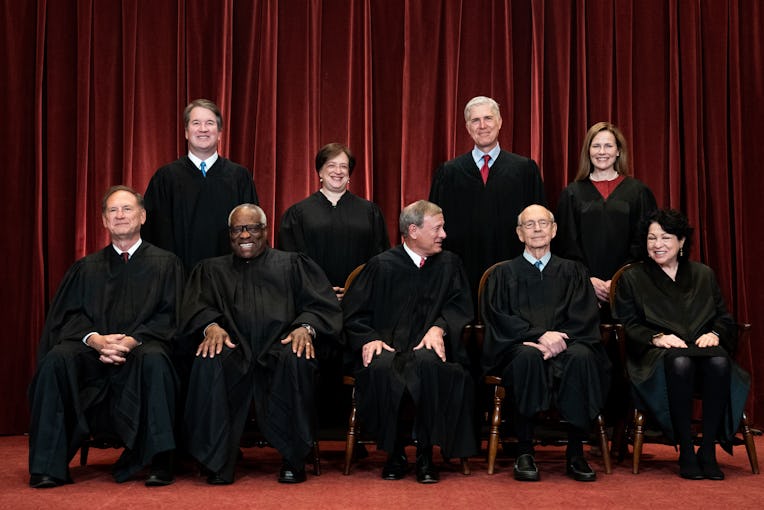Supreme Court Said “Landlord Rights”
And also “I’m not like other courts 😜”

The Supreme Court has lifted a part of New York’s ban on residential evictions, siding with landlords — people who earn income, not by working but by passively owning property, and who have another place to stay by definition — over the nearly 500,000 tenants state-wide who are behind on rent and the millions more working to pay it.
The emergency order, issued late Thursday, concerned a piece of New York legislation passed last year called the Covid Emergency Eviction and Foreclosure Prevention Act, or CEEFPA. The law temporarily halted eviction hearings if a tenant claimed financial hardship during the pandemic. In a case called Chrysafis v. Marks, landlords complainted this violated their right to due process by allowing renters to stall eviction proceedings without proof that the COVID-19 lockdowns had impacted their ability to pay rent or giving property-owners a chance to rebut the evidence.
This was not a convincing argument for the federal district court in New York, which dismissed their challenge in April, or the U.S. Court of Appeals for the 2nd Circuit, which also rejected the request not long after. But the conservative-super majority Supreme Court found a way to advance the interests of the already powerful through an easily weaponized protocol called the “shadow docket.”
That sounds like some bullshit dreamed up by Jack Posobiec, but is very real and has become, as villainess Amy Coney Barrett put it in her confirmation hearings, a “hot topic in the last couple of years.” Specifically: last year, when the Supreme Court pushed through emergency rulings on “coronavirus policies, immigration restrictions, capital punishment, access to abortion, the U.S. census and procedures for the upcoming election” — many of them came from the shadow docket.
The shadow docket operates in relative secrecy, without the oral arguments, public briefings, and lengthy signed opinions that take place for the 60-70 cases on the “merits docket,” which the Supreme Court reviews in full view of the public each year. Shadow docket cases can be handed down with brief decisions — sometimes no longer than a sentence — late at night, without crucial information, like how the majority justified their conclusion or how each Justice voted. The Chrysafis v. Marks decision, for example, spanned just three-and-a-half pages. It was unsigned and omitted the voting record of all but the dissenting Justices: the three liberals — Stephen Breyer, Elena Kagan, and Sonia Sotomayor.
These omissions are significant, because the opinion provides only slim context on the grounds for lifting a critical feature of the ban — which offers tenants protection without hearings:
This scheme violates the Court’s longstanding teaching that ordinarily “no man can be a judge in his own case” consistent with the Due Process Clause.
It’s unclear how this will immediately impact renters. Several tenants rights groups contacted by Gawker, including New York Legal Assistance Group and IMPACCT Brooklyn, did not immediately respond to requests for comment. But the decision leaves in place other CEEFPA protections, like requiring New York courts to “entertain a covid-related hardship defense in eviction proceedings” — though those are expected to expire on Aug. 31. It also comes days after the Centers for Disease Control and Prevention extended an eviction moratorium for areas highly impacted by the Delta variant.
Even still, Justice Breyer warned in his dissent that New York tenants will now “be forced to face eviction proceedings earlier than expected,” which “may lead to unnecessary evictions.”